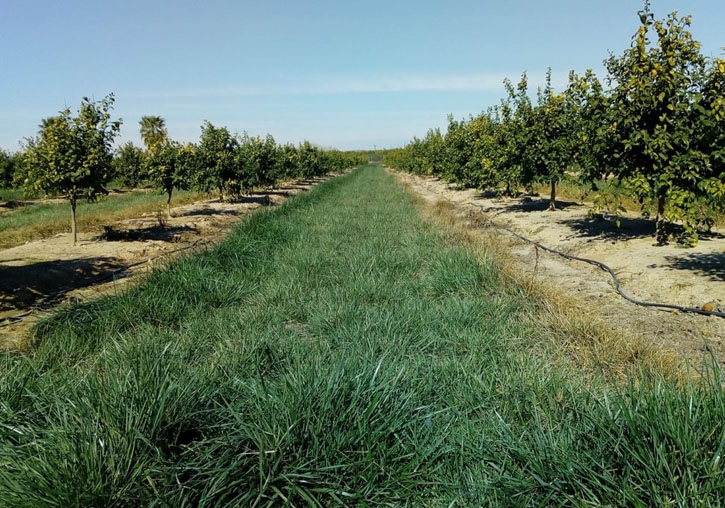
The SOREiMA and REDOLí research groups of the University of Valencia have received funding from the European Union and the Generalitat Valenciana to develop the Poda-Val agrobiological project, with which the benefits of using green manures from pruning remains will be transferred to the agricultural sector as a contribution of biomass to the soil before flowering.
Currently, in the Mediterranean region, a large amount of waste from the pruning or stubble of the crops is incinerated, which emits greenhouse gases and causes risks to people’s health and the environment. In other cases, these remains are often left in the field, which can cause damage to trees by favouring the proliferation of certain strains of fungi in the trunks. On the other hand, the use of herbicides can be replaced by planting plant species to prevent the growth of certain adventitious ones and which are used as green manure.
The proposal developed by the University of Valencia and the Valencian Association of Farmers (AVA-ASAJA) is based on promoting the recycling of pruning remains and promoting green manures or crops that contribute their biomass to the soil before flowering, with which the fungal risk and the appearance of harmful insects is reduced. The application of green manures, made with vegetable crops and pruning remains, produces a significant increase in the production of certain crops.
On the other hand, favouring the fixation of organic carbon in soils, as well as increasing its organic matter content are very important aspects to mitigate the effects of climate change. After rocks and oceans, soils constitute the main carbon sink of the planet (more than doubled the atmosphere and vegetation together).
In addition, avoiding the incineration of stubble and pruning remains and incorporating them into the soil of agro-systems, contributes to the recycling of organic matter and nutrients, to reduce CO2 emissions into the atmosphere, as well as to the increase in stocks of carbon in the soils. All this helps improve soil quality and mitigate the greenhouse effect.
The project also involves a new approach to the valuation of agricultural waste, which ceases to be incinerated in the fields or transferred to landfills or treatment plants, to carry out the recycling process on site. In addition, proper management of pruning remains, stubble and plant cover increases soil fertility and contributes to the balance of the hydrological cycle, as it reduces evapotranspiration, increases water storage capacity in the soil and increases the recharge of the aquifers.
For all these reasons, the project is a clear commitment to sustainability and another contribution in the fight to mitigate the effects of climate change in the Mediterranean area, highlighted by the research groups.
The proposal (AGCOOP_B / 2019/017) is funded by the Valencian Agency of Public Works and Agrarian Guarantee of the Valencian Government and by the European Union through the European Agricultural Fund for Rural Development (EAFRD).
Project’s website: https://podaval.blogs.uv.es/

.jpg)







